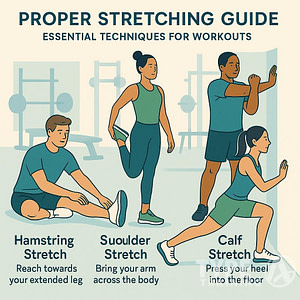Embarking on a ketogenic diet not only changes your approach to nutrition but also may influence how you sleep. This low-carb, high-fat eating plan aims to switch your metabolism to use fat as its primary energy source.
While many people turn to keto for weight loss, it’s worth exploring how it might impact your sleep patterns.
A shift in your diet can lead to dramatic changes in sleep quality, offering both potential improvements and challenges. Some studies suggest the keto diet might enhance certain stages of sleep, yet some individuals report struggles with falling asleep.
Popular posts:
Understanding how your body adjusts to this regime is key to optimizing your nighttime rest.
You may wonder if reducing carbohydrates could be affecting your overall rest and revitalization. With insights into the science of sleep and personalized adjustment tips, you can harness the benefits of keto while ensuring restorative sleep.
Key Takeaways
- Keto can both improve and disrupt sleep.
- Fat adaption might change sleep patterns.
- Personal adjustments can enhance sleep quality.
Exploring the Ketogenic Diet
The ketogenic diet is a popular low-carb, high-fat eating plan. It changes how you get energy from food, which can influence your body’s metabolism. By shifting to more fat intake and reducing carbs, you can initiate a process known as ketosis.
Definition and Principles
The ketogenic diet focuses on drastically reducing carbohydrates and increasing fat. This plan triggers your body to use fat for energy instead of carbohydrates.
Typically, you consume about 70-75% of your daily calories from fat, 20-25% from protein, and 5-10% from carbs. Glucose levels decrease, prompting the liver to break down fat into molecules called ketones, which then fuel the body.
This process can be beneficial for weight loss and improving energy levels.
Macronutrient Ratios and Types of Keto Diets
There are different types of ketogenic diets that vary based on macronutrient percentages. Some common variations include:
- Standard Keto Diet (SKD): 75% fat, 20% protein, 5% carbs.
- Cyclical Keto Diet (CKD): Alternates between 5 keto days and 2 higher-carb days.
- Targeted Keto Diet (TKD): Carbs are consumed around workouts.
- High-Protein Keto Diet: Contains a higher amount of protein, about 60% fat, 35% protein, and 5% carbs.
Choosing the right type depends on your lifestyle and goals.
Ketosis and Ketone Bodies
Ketosis is a state where your body uses fat as its primary energy source. Carbohydrate intake is minimized, causing the liver to convert fats into ketones. These ketones replace glucose and become the primary energy source.
Measuring ketone levels can help you track your progress and maintain ketosis, usually done through blood, urine, or breath tests. Maintaining this state may lead to benefits like improved cognitive function, stable energy levels, and better sleep for some people.
The Science Behind Sleep
Sleep plays a vital role in maintaining your health and well-being. Understanding different elements like sleep cycles, regulation, and disorders can help improve your sleep quality and overall life.
The Sleep Cycle and Its Stages
Your sleep consists of several stages that repeat in cycles throughout the night, commonly known as the sleep cycle. The sleep cycle is divided into rapid eye movement (REM) sleep and non-REM sleep stages.
Non-REM sleep includes light stages and deep sleep, or slow-wave sleep, which is crucial for restoration.
Meanwhile, REM sleep is when you experience dreams and is essential for memory and mood regulation. The average sleep cycle lasts about 90 minutes and repeats multiple times each night.
Sleep Regulation and Neurochemistry
Your sleep patterns are influenced by several chemicals and processes in the body.
Melatonin is a hormone that helps regulate your sleep-wake cycle. It signals your body when it’s time to sleep.
Adenosine levels increase during waking hours, leading to sleep pressure and inducing sleep.
Tryptophan is another compound linked with the production of serotonin, which affects mood and relaxation. These chemical reactions synchronize with your circadian rhythms, aligning your body clock with external cues like light.
Sleep Disorders and Common Issues
Various sleep disorders can affect your sleep quality.
Insomnia involves difficulty falling or staying asleep, resulting in fatigue.
Sleep apnea, particularly obstructive sleep apnea, is a condition where breathing repeatedly stops during sleep, disrupting restful sleep stages.
Other issues include difficulties achieving deep and REM sleep, impacting your restorative sleep. Understanding these disorders and factors can help in seeking effective treatments and improving your sleep pattern. Awareness of how lifestyle and diet choices, like a ketogenic diet, can interact with these disorders is also beneficial.
How Keto Influences Sleep
The ketogenic diet, known for its low-carb and high-fat approach, significantly impacts sleep quality. While some experience better sleep, others may find the initial adjustment challenging. Understanding how specific components of this diet affect your rest is important.
Weight Loss and Sleep Quality
Following a keto diet often leads to weight loss, which can improve sleep quality.
Losing weight reduces the risk of sleep disorders like sleep apnea. Excess body weight can obstruct airways, leading to disturbed sleep. By shedding pounds, you may notice a reduction in such problems.
Improved sleep quality also comes from changes in hormone levels associated with weight loss. When you lose weight, your body can regulate hormones better, potentially reducing fatigue and improving your sleep patterns.
Carbohydrate Intake and Sleep Patterns
On a ketogenic diet, reducing carbohydrate intake can alter your sleep patterns.
Carbs influence the creation of brain chemicals that help regulate sleep, such as serotonin and melatonin. With fewer carbs, you might experience difficulty in falling asleep initially.
If your carbohydrate levels are too low, it can lead to keto insomnia. Some studies have linked high-carbohydrate diets with better sleep efficiency and REM sleep, which you may miss out on when starting keto.
Fat Consumption and Sleep Architecture
Fat consumption is a major component of the ketogenic diet.
High-fat diets can lead to changes in sleep architecture, including increased slow-wave sleep. Slow-wave sleep is the deep, restorative sleep phase, and having more of it means you might wake up feeling more refreshed.
Sufficient amounts of healthy fats, like those found in avocados, nuts, and olive oil, could support improved sleep. The balance of omega-3 and omega-6 fatty acids also plays a role in maintaining good sleep quality.
Adaptation Period: Keto Flu and Sleep Disruptions
As you begin the keto diet, you may experience keto flu, a collection of temporary symptoms affecting your body as it adjusts to using fats instead of carbs for energy.
These symptoms often include headaches, fatigue, and sleep disruptions.
During this adaptation period, known as the keto flu, you may struggle with difficulty falling asleep or staying asleep. Drinking enough water and getting electrolytes like sodium, potassium, and magnesium can help reduce these disruptions.
Long-Term Effects on Sleep and Insulin Sensitivity
Adopting a ketogenic diet over the long term can impact insulin sensitivity, which is closely linked to sleep patterns.
Improved insulin sensitivity means your body manages blood sugar levels more effectively, reducing the risk of type 2 diabetes and its associated sleep problems.
Long-term keto dieting may result in more stable energy levels, leading to more consistent and higher-quality sleep. However, it’s important to ensure you’re meeting your body’s nutritional needs to maintain these benefits over time.
Nutritional Considerations for Enhanced Sleep on Keto
Adapting a ketogenic diet can impact your sleep in different ways. Focusing on proper nutrition can help improve sleep quality, support energy levels, and maintain overall health.
Importance of Electrolytes and Hydration
On a keto diet, electrolyte balance is crucial. Since you tend to lose more water and electrolytes like sodium, potassium, and magnesium, you may experience sleep disturbances.
Ensure you stay hydrated by drinking enough water.
Consider incorporating electrolyte-rich foods like spinach, avocados, and nuts. You might also consider supplements to maintain optimal levels, particularly magnesium, which helps with muscle relaxation and reduces cramps, promoting better sleep.
Keeping this balance is key to avoiding fatigue and helping your nerve functions stay regulated.
Optimizing Macronutrient Intake
Macronutrients play a crucial role in your sleep quality. Eating the right balance of fats, proteins, and carbohydrates can influence how well you sleep.
Maintaining a low to moderate protein intake with higher fats supports energy levels without disturbing your sleep. Some find a small intake of healthy carbs in the evening can reduce issues like insomnia.
Listening to your body’s response to these nutrients can guide you in adjusting your diet for better rest.
Incorporating Fiber and Gut Health
Fiber is often overlooked, but it’s important for your gut health and can indirectly affect your sleep.
Including fiber-rich foods, such as leafy greens and seeds, aids digestion and can improve the beneficial bacteria in your gut.
A healthy gut can influence the production of serotonin and melatonin, both of which play parts in regulating sleep.
Focus on diversifying your fiber sources to help support not just your digestive health but also your sleep cycle.
Lifestyle Factors Influencing Sleep on a Keto Diet
Making changes to your diet, like starting a keto plan, can affect how well you sleep. Two important factors that can influence your sleep quality while on a keto diet are your level of physical activity and your sleep environment.
Physical Activity and Its Impact on Sleep
Physical activity is crucial for maintaining good sleep. Regular exercise can help you fall asleep faster and deepen your sleep.
Engaging in activities like walking, jogging, or strength training can boost your mental clarity and help reduce inflammation.
On a keto diet, you might experience more energy, encouraging you to be more active. However, it’s best to avoid intense workouts right before bed, as this can lead to sleep issues.
Instead, aim for moderate exercise during the day to help balance your energy levels and control your appetite. This can lead to healthy sleep patterns.
The Role of Sleep Hygiene and Environment
Sleep hygiene refers to habits and practices that can improve your sleep quality.
While on a keto diet, it’s important to create a restful sleep environment. Keep your bedroom dark, cool, and quiet to signal your body that it’s time to rest.
Avoid screens at least an hour before bed, as the blue light can disrupt your sleep cycle.
Establish a calming bedtime routine, such as reading or taking a warm bath. This can help reduce stress and promote relaxation, aiding in better sleep.
Your sleep environment and habits play a significant role in how well you rest, especially when making dietary changes.












